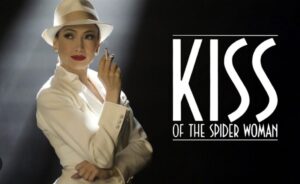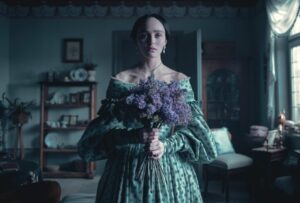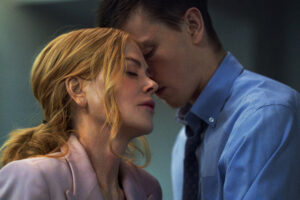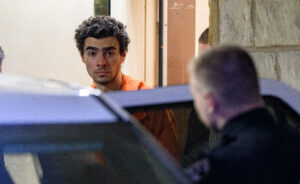The long-awaited sequel to Tim Burton’s 1988 cult classic, Beetlejuice, has finally arrived. Beetlejuice 2, a vibrant, bizarre, and equally eccentric follow-up, brings audiences back into the quirky, gothic world of the beloved bio-exorcist. With a mix of old favorites and new faces, the film expands on the mythology of the original while embracing a modern sensibility, offering fans both a nostalgic trip and a fresh take on the story. The film, brimming with Burton’s signature dark humor and whimsical visuals, is a highly entertaining experience that delights in being unapologetically strange.
Plot Overview
Beetlejuice 2 picks up years after the events of the first film, bringing back the ghostly “bio-exorcist” Beetlejuice (once again played by the inimitable Michael Keaton) and the now-adult Lydia Deetz (reprised by Winona Ryder). Lydia has continued her life as a goth icon, deeply entrenched in the strange and macabre, but now faces a new supernatural dilemma as her teenage daughter (played by Jenna Ortega) finds herself entangled in the world of the dead. This time, it’s not just about scaring unwanted houseguests—it’s about confronting an even larger threat from the afterlife.
The sequel stays true to the spirit of the original, with its darkly comic take on death, the afterlife, and the peculiar boundaries between the living and the dead. The plot doesn’t just recycle the same ideas but introduces new elements that expand on Beetlejuice’s chaotic antics and Lydia’s introspective journey.
Tim Burton’s Visual World: A Gothic Wonderland
One of the most striking aspects of Beetlejuice 2 is the visual world that Tim Burton masterfully creates. Burton’s aesthetic has evolved since the 1988 film, but he brings back the eccentric mix of garish colors, gothic architecture, and surreal landscapes that defined the original. The afterlife, with its bureaucratic oddities and grotesque creatures, is still bizarre and darkly humorous, but the new movie ups the ante with modern special effects, allowing for an even more vivid and immersive world.
From the hauntingly beautiful depiction of Lydia’s home, a decaying mansion filled with odd artifacts, to the chaotic “Neitherworld” where Beetlejuice roams, every frame is packed with visual creativity. Burton’s signature style—a mix of horror, comedy, and fantasy—shines through, with exaggerated sets, angular designs, and an ever-present layer of darkness balanced by humor.
This balance is one of Burton’s greatest strengths, and Beetlejuice 2 maintains the careful blend of the creepy and the comical. The macabre aesthetic never feels oppressive; instead, it plays into the film’s irreverence, making death seem more absurd than tragic.
Michael Keaton’s Triumphant Return as Beetlejuice
At the heart of the film, of course, is Michael Keaton as Beetlejuice. After more than three decades, Keaton steps back into the role with remarkable ease, embodying the anarchic, rude, and endlessly entertaining spirit of the character. His Beetlejuice is as unhinged as ever, spouting wild one-liners, pulling off outrageous pranks, and gleefully embracing chaos. Keaton brings a manic energy to the role that manages to feel fresh while staying true to the original.
Beetlejuice remains a mischievous anti-hero, but there’s a touch of vulnerability this time around. The script gives Keaton more emotional depth to explore without losing the character’s edge. It’s a testament to Keaton’s performance that he can make Beetlejuice both repulsive and endearing—he’s the villain you can’t help but root for, even as he causes mayhem.
New Additions: Jenna Ortega Shines
A standout addition to the cast is Jenna Ortega, who plays Lydia’s daughter. Ortega, coming off recent success in horror-tinged roles like Wednesday and Scream, brings her natural talent for blending gothic sensibilities with humor to this film. Her character embodies a similar angst and curiosity as her mother did in the original, and her chemistry with Ryder and Keaton adds a fresh dynamic to the film.
Ortega’s character is central to the new plot, and she plays the role of a teenager grappling with her own identity and a deep curiosity about the afterlife. Ortega’s performance is full of heart and wit, making her character more than just a proxy for Lydia’s younger self. She manages to hold her own next to the iconic characters of Beetlejuice and Lydia, adding a fresh energy to the film’s bizarre world.
Winona Ryder’s Return as Lydia
For fans of the original, Winona Ryder’s return as Lydia Deetz is a welcome gift. Ryder slips back into Lydia’s black attire and deadpan delivery with ease, and while her character has grown and matured, she hasn’t lost her love for the strange and unusual. Ryder’s portrayal of Lydia remains central to the film’s emotional core, providing a connection between the old and new generations.
Lydia’s evolution into motherhood adds new layers to her character. She remains the goth icon audiences loved, but now grapples with the challenges of raising a daughter who shares her fascination with the supernatural. Ryder gives Lydia a quiet strength, and her scenes with Keaton’s Beetlejuice are a highlight, bringing the dynamic that worked so well in the first film back to life.
The Humor and the Writing
Beetlejuice 2 is packed with the same quirky humor that made the original so beloved. The film is full of dark jokes, slapstick humor, and plenty of fourth-wall-breaking moments. Beetlejuice’s irreverence knows no bounds, and the film doesn’t shy away from pushing the envelope when it comes to offbeat comedy.
The writing, while not as sharp as the original at times, strikes a balance between nostalgia and modern sensibilities. Fans of the original will appreciate the callbacks, from the famous “Day-O” dinner scene homage to Beetlejuice’s endless wisecracks. New audiences will find plenty to laugh at as well, with the humor feeling contemporary enough to appeal to a wider range of viewers.
While there are moments where the script can feel a little too reliant on fan service, these moments are outweighed by clever plot developments and genuinely funny scenes. The movie doesn’t just rest on the success of its predecessor but builds upon it, introducing new concepts and characters while honoring the original’s spirit.
The Themes: Life, Death, and Everything In Between
As with the first film, Beetlejuice 2 grapples with themes of life, death, and what comes after in a lighthearted, irreverent way. The film doesn’t take itself too seriously, but there’s an underlying message about finding meaning in the bizarre, unpredictable journey of life. The afterlife in Burton’s world isn’t a scary place—it’s a chaotic one, filled with its own bureaucracy, oddball characters, and rules that don’t always make sense.
At its core, Beetlejuice 2 is about family—both the one you’re born into and the one you choose. Lydia’s relationship with her daughter echoes her own struggles with identity and acceptance, while Beetlejuice remains a chaotic figure who disrupts the norms but ultimately brings the family closer together, albeit in the most twisted way possible.
A Worthy Sequel
Beetlejuice 2 is a vibrant, eccentric, and surprisingly heartfelt sequel that honors the original while bringing something new to the table. Tim Burton’s signature style shines through, and with strong performances from Michael Keaton, Winona Ryder, and Jenna Ortega, the film captures the magic of the original while appealing to a new generation.
Fans of the 1988 classic will find much to love in this return to the Neitherworld, and newcomers will be drawn in by the film’s bizarre humor, strong visuals, and endearing characters. It’s a sequel that, much like its titular character, is wild, unpredictable, and endlessly entertaining. If you’ve ever wanted more of the strange and unusual, Beetlejuice 2delivers in spades.









